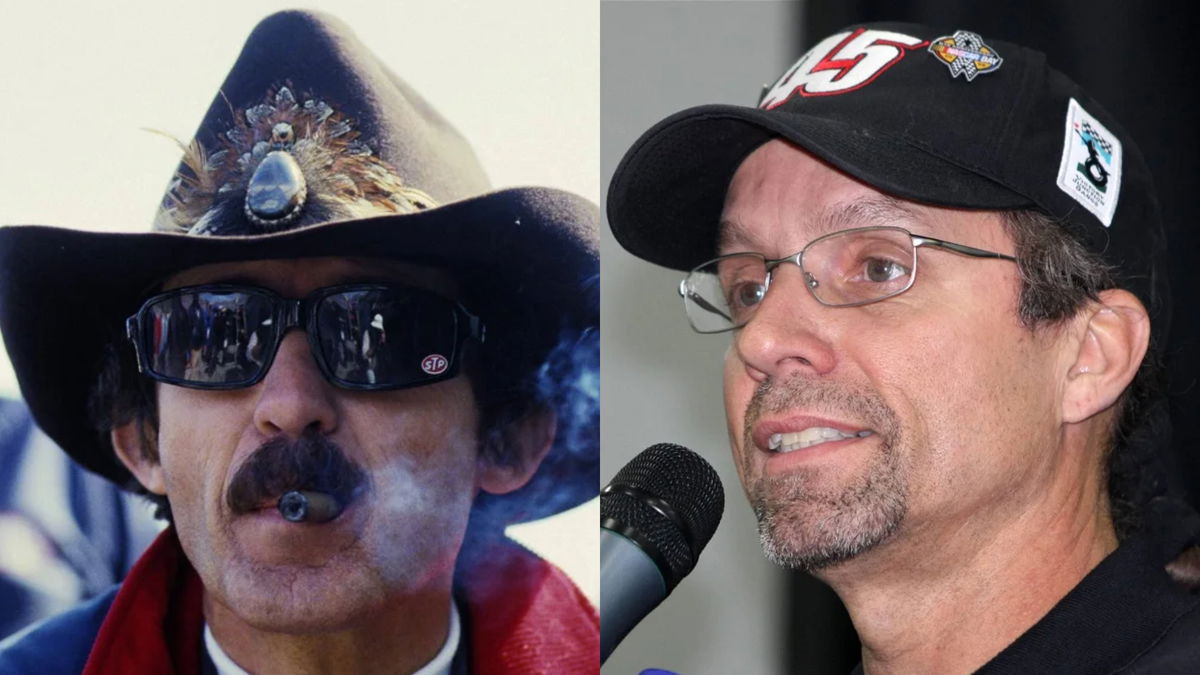
Imago
Image Credits: Imago

Imago
Image Credits: Imago
The Next Gen car has ignited a heated off-track debate, dividing the NASCAR garage into clear camps. Supporters like Kyle Petty praise its role in modernizing the sport, while critics such as Denny Hamlin and Dale Earnhardt Jr. point out flaws in racing quality and driver experience. Petty, with his deep roots in NASCAR, has emerged as the most outspoken defender, now defending his original statements about the same.
Watch What’s Trending Now!
This split mirrors historical rifts, like the 2007 rollout of the Car of Tomorrow, designed for safety after Dale Earnhardt’s fatal crash but criticized by drivers for poor handling and aesthetics that altered competitive dynamics. Denny Hamlin drew parallels, stating, “I believe that the Next Gen car is reaching hate levels of the COT with the wing. From fans, I think they’re starting to dislike this car as much as the drivers that have to drive it.” As tensions rise, Petty’s unyielding stance takes center stage as he doubles down on his words.
Kyle Petty stands firm on his Next Gen defense
Kyle Petty doubled down on his support for the Next Gen car in a recent X video, refusing to retract his views despite heavy fan and peer pushback following underwhelming races at tracks like Watkins Glen. He addressed the criticism head-on, saying, “OK, a few things were said this last week about the next-gen car, and you guys responded, and I appreciate that. You responded with a passion, and you responded adamantly. At the same time, you haven’t changed my mind.”
The NASCAR community showed again why it’s the most passionate in sports! I’m not changing my mind on this car, and here are a few reasons why. pic.twitter.com/720TSAkAmr
— Kyle Petty (@kylepetty) August 14, 2025
This came after Dale Earnhardt Jr. labeled the car a “sports car” rather than a true stock car, sparking the latest round of debate after the Iowa Speedway event, where passing proved difficult due to aerodynamic issues. Petty emphasized his long perspective, rooted in watching NASCAR evolve from custom-built chassis to the current standardized model.
Petty explained, “I’ve been around a long, long time. I’ve seen a lot of iterations of cars. I’ve seen cars show up at my dad’s house that they turned into race cars. I’ve seen a body in white that they made a race car. I saw them build chassis from the ground up and put bodies on them and go race them. Now we have the bolted-together car. This next year car. It’s what we have. It is a NASCAR. It’s not a stock car; it is a NASCAR.”
Petty also spoke about how the issues go beyond the car: “It’s not the next Gen’s fault. There’s a lot of issues, that need to be addressed, not only the car. You guys listen because the drivers complain, and rightfully so. If they don’t like it, they should have a voice and they should complain. But at the same time, they’re still putting on racing every Sunday, and they’re putting on some pretty dang good racing every Sunday, if you ask me…with the next Gen car.”
The pushback stems from events like the low lead changes at Bristol, where critics argue the car’s design limits mid-race overtakes, but Petty countered that drivers’ complaints are valid, yet the racing remains solid with close finishes and green-white-checkered excitement. Dale Earnhardt Jr. had fired back on his podcast, disagreeing with Petty’s optimism and stressing the car’s failure to meet historical standards.
Dale Jr. had said, “The car does not produce the type of racing that I think should be our standard, and I know what we’re capable of at road courses and short tracks.” This exchange highlights a broader tension, reminiscent of the 1970s shift to tubular chassis that also drew complaints but advanced the sport.
But Petty urged forward momentum, noting, “This sport is moving forward, as evidenced by the new Amazon deal, by the Turner deal, by the TV packages we have, by SVG, and by drivers coming from all over the world; the sport is moving forward. We need to keep the sport moving forward.” While Petty’s current views spark lively discussions, his past achievements remind fans of his enduring impact. Looking back at his time with Wood Brothers Racing offers a refreshing perspective on his career highlights.
Petty’s Wood Brothers legacy revisited
Kyle Petty’s tenure with Wood Brothers Racing marked a pivotal chapter, starting in 1985 when he joined the storied team known for its innovation and longevity in NASCAR. He secured his first Cup Series win in 1986 at Richmond International Raceway in the Miller High Life 400, driving the No. 21 Ford to a breakthrough victory that set the tone for future successes. This period showcased Petty’s skill on short tracks, where he notched multiple top-10 finishes amid fierce competition from legends like his father, Richard Petty.
The collaboration yielded another key win in 1987 at the Coca-Cola 600 in Charlotte, a grueling 600-mile event that tested endurance and strategy. Petty’s ability to adapt to the team’s engineering focus helped deliver consistent performances, including eight poles over his career, with several earned during this era. These moments are now relived through “Wood Brothers Racing Memories,” airing Wednesdays on the NASCAR Channel, providing fans with archival footage and insights into the team’s 70-plus years of history.
Beyond the wins, Petty’s time with Wood Brothers emphasized family ties and mechanical evolution, aligning with his current advocacy for progress. He left the team in 1988 but carried lessons from their chassis-building expertise, which he often references today. The show highlights these stories, encouraging viewers to appreciate how past innovations shaped modern racing without dwelling on controversies.



